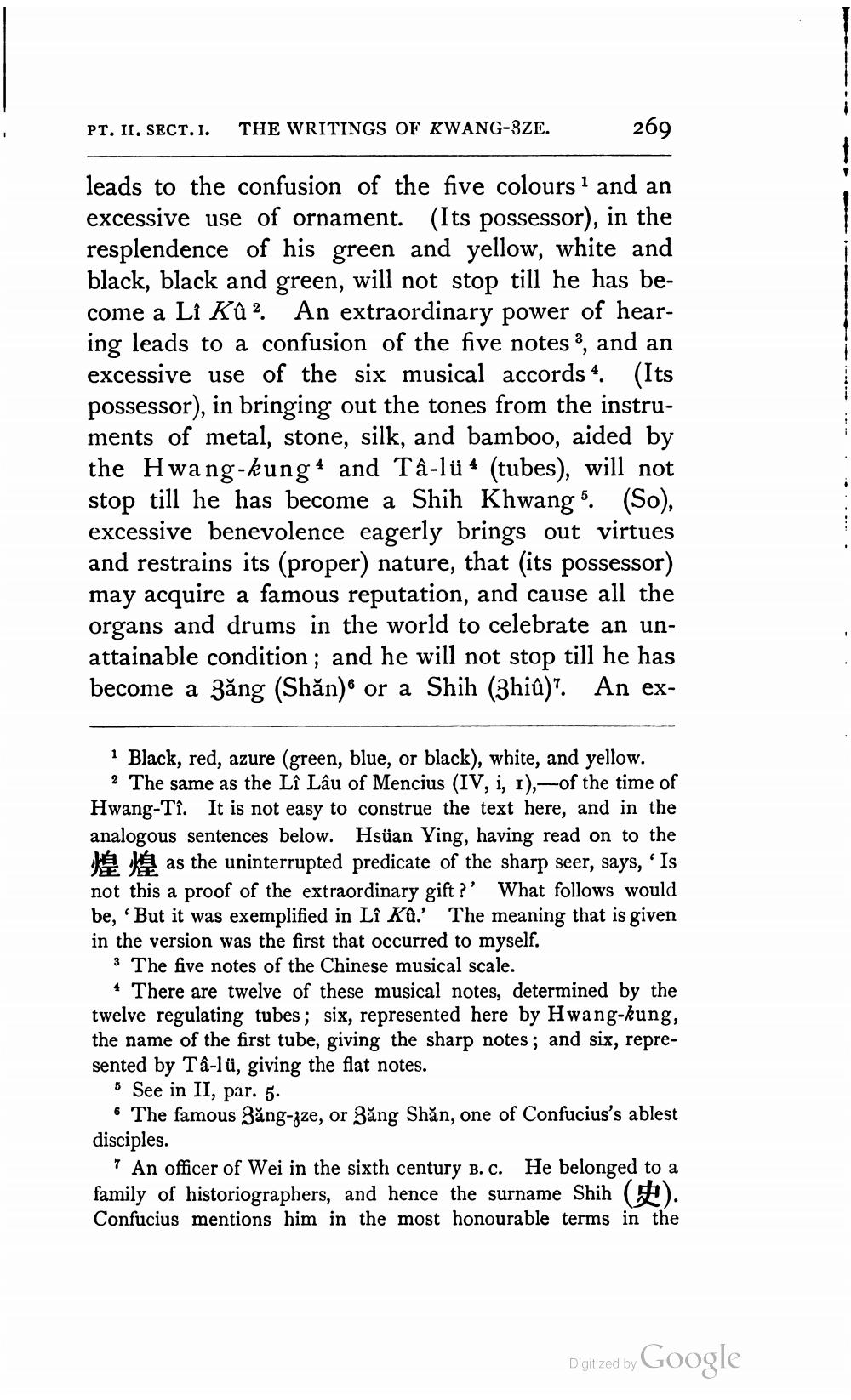________________
269
leads to the confusion of the five colours1 and an excessive use of ornament. (Its possessor), in the resplendence of his green and yellow, white and black, black and green, will not stop till he has become a Li Ka2. An extraordinary power of hearing leads to a confusion of the five notes 3, and an excessive use of the six musical accords 4. (Its possessor), in bringing out the tones from the instruments of metal, stone, silk, and bamboo, aided by the Hwang-kung and Tâ-lü (tubes), will not stop till he has become a Shih Khwang 5. (So), excessive benevolence eagerly brings out virtues and restrains its (proper) nature, that (its possessor) may acquire a famous reputation, and cause all the organs and drums in the world to celebrate an unattainable condition; and he will not stop till he has become a 3ăng (Shăn) or a Shih (3hiû). An ex
PT. II. SECT. I. THE WRITINGS OF KWANG-8ZE.
1 Black, red, azure (green, blue, or black), white, and yellow.
2 The same as the Lî Lâu of Mencius (IV, i, 1),—of the time of Hwang-Tî. It is not easy to construe the text here, and in the analogous sentences below. Hsüan Ying, having read on to the as the uninterrupted predicate of the sharp seer, says, 'Is not this a proof of the extraordinary gift?' What follows would be, 'But it was exemplified in Lî Kû.' The meaning that is given in the version was the first that occurred to myself.
3 The five notes of the Chinese musical scale.
There are twelve of these musical notes, determined by the twelve regulating tubes; six, represented here by Hwang-kung, the name of the first tube, giving the sharp notes; and six, represented by Tâ-lü, giving the flat notes.
5 See in II, par. 5.
• The famous 3ăng-zze, or 3ăng Shăn, one of Confucius's ablest disciples.
7 An officer of Wei in the sixth century B. C. He belonged to a family of historiographers, and hence the surname Shih ().
Confucius mentions him in the most honourable terms in the
Digitized by Google




